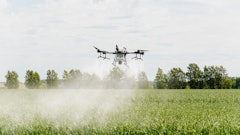This is a thought provoking article from the Website theguardian.com that dives head first into the issue of whether or not changing formulations and ingredients could lead to possible cases of food fraud.
According to the article, about 1-2 percent of adults and 5-8 percent of children in the UK are reported to have a diagnosed food allergy. Many more worry about allergy and food intolerance, and the prevalence appears to be increasing.
Allergen recalls cost the food industry millions of pounds, and at the end of 2014 all UK caterers will be obliged by law to provide allergen information. Burdens on consumers, the health services and the food industry are increasing.
A common problem in fatal and near fatal reactions to such dishes is that customers are often regulars at a restaurant or takeaway, where their allergy is well known to staff. Sudden, unexpected reactions in respected and reputable businesses suggest fraud in supply chain.
The cases we have looked at represent a spectrum, from unintentional or perhaps corner cutting to intentional, even criminal, addition of undisclosed allergens in food. But all endanger those with allergies and undermine the food industry's determination to manage allergens in a responsible manner.
The Elliott Review – which many people may associate with the horsemeat scandal – actually looks into the integrity and assurance of food supply networks as a whole. The interim report, published in December 2013, says a new culture is required and adopts "zero tolerance" as a core principle. Elliott comments: "In sectors where margins are tight and the potential for fraud is high, even minor dishonesties must be discouraged and the response to major dishonesties deliberately punitive".
To read more, click HERE.





























